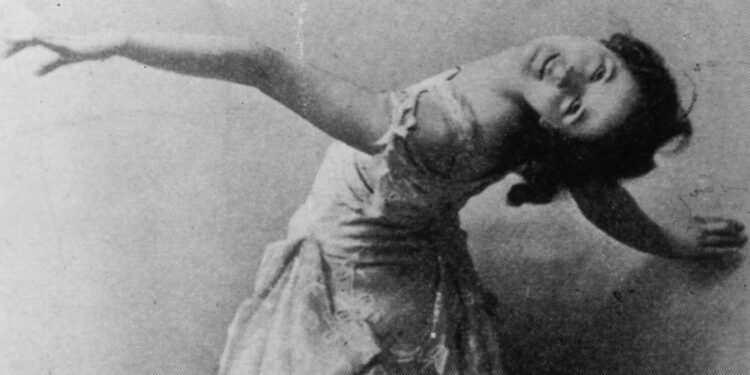Isadora Duncan, born in 1877, is a legendary figure in the world of dance. She is often hailed as the “Mother of Modern Dance” for her groundbreaking contributions to the art form. With a career that spanned several decades, Duncan revolutionized dance and left an indelible mark on the world of performing arts.
Duncan’s approach to dance was a stark departure from the rigid and formal ballet of her time. She believed in the freedom of movement and expression, emphasizing natural, flowing motions over the strict, structured steps of classical ballet. Her dances were inspired by nature, Greek mythology, and her own emotions, allowing her to connect with audiences on a deeply emotional level.
One of Duncan’s most significant contributions was her rejection of corsets and restrictive clothing. She famously danced barefoot in simple, flowing costumes that allowed for unrestricted movement. This symbolized her belief in the liberation of the body and the soul through dance, an idea that would influence generations of dancers to come.
Duncan’s performances were a radical departure from the norm. Her movements were fluid and spontaneous, and she often used improvisation, breaking away from the traditional choreography of the time. She believed that dance should be a genuine expression of the self, and her performances were deeply personal and often provocative.
Throughout her career, Duncan’s influence spread across Europe and the United States. She established dance schools and taught her revolutionary techniques to a new generation of dancers. Her students included some of the most prominent figures in modern dance, such as Martha Graham and Doris Humphrey, who went on to further shape the evolution of the art form.
Tragically, Isadora Duncan’s life ended in 1927 in a horrifying accident when her flowing scarf became entangled in the wheels of a car, leading to her untimely death. Despite her tragic end, her legacy lives on. Her ideas about the freedom of movement and the emotional power of dance continue to inspire and influence dancers and choreographers to this day.
In conclusion, Isadora Duncan was a visionary artist who revolutionized the world of dance. Her emphasis on freedom of movement, emotional expression, and the rejection of restrictive traditions paved the way for modern dance as we know it. Her impact on the world of performing arts is immeasurable, and she will forever be remembered as the “Mother of Modern Dance.”
newshub



Recent Comments